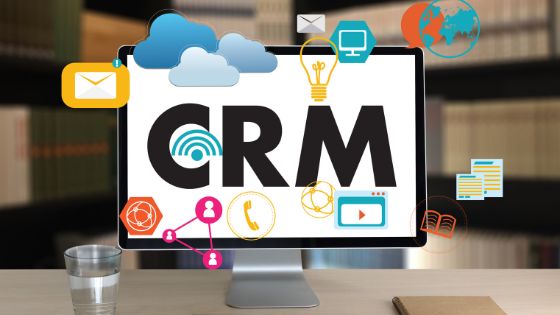Being a small business is tough. Being a small business that is fearing upscaling, is tougher. When you reach a certain threshold, your business operations and marketing efforts need to be upgraded to match the inflow of leads and customers. A good CRM solution helps mitigate that.


CRM tools are custom solutions that help a business sustain and upscale its business operations. According to Nucleus Research, A return of $8.71 was recorded for every dollar spent in 2014, which had increased to $30.48 in 2021. The growth and demand for CRM tools over the years has increased to an extent where 91% of companies with 10 or more employees use some form of CRM for their operations.
What is a CRM
Customer relationship management (CRM) is a tool that empowers you to track and manage your campaigns and customer activities in a unified space. CRM tools contribute to your business by managing contact info, customer history, sales opportunities, analytics, and marketing campaigns.
In a general sense, there are 5 types of CRM software that are distinct in their functionality. However, when considering CRM solutions, you can mix and match the features that the tools offer. The 5 types of CRM tools are:
Operations CRM
Operational CRM tools simplify audience interaction by integrating sales, marketing, and service automation in a single repository. Data aggregation systems and call centers are prominent examples.
Analytical CRM
Analytical CRM concentrates on customer and business analytics. The CRM tools analyze both offline and online data being uploaded to them and provide a visual representation to you.
Collaborative CRM
Mostly built for sales communications, collaborative CRM provides updated access to the latest customer data for the sales executives to follow up on. If a lead needs to provide repetitive information to the executives each time you contact them, it may not be an optimum experience.
Strategic CRM
While collaborative CRM focuses on providing information, strategic CRM utilizes the information to develop a customer interaction strategy with AI for a long-term relationship.
Campaign Management CRM
Campaign management CRM tools offer digital marketing options that you may use to set off your campaigns. These tools, in addition to setting up a campaign, track the progress and generate detailed reports.
How Does a CRM Software Work
A simple CRM software is a unified solution that helps you streamline your marketing, finance, and business operations. Let’s look at instances where CRM proves to be beneficial.
- If you are a B2C business, handling hundreds of service calls may not be optimum for your business operations. Operational CRMs provide you with a service that voids your direct interaction with customers. This fixture ensures that you don’t face the wrath of dissatisfied customers and have ample time to fix an issue.
- Getting substantial traffic but failing to turn them into customers is a problem for many businesses. In most cases, the content of the page is responsible for this issue. Either your content isn’t optimized for the targeted audience, or you’re failing to target the intended audience. Analytical CRM tools help you mitigate both.
- Suppose you are a dealership of premium watches. The way your business operates is a customer marks multiple watches through a unified online system for a physical trial. And when they arrive at your shop, they expect you to be ready with the options. If the platform fails to provide enough data on their preference and in turn, you fail to provide them with the service, you risk losing them. Collaborative CRM tools ensure that everyone responsible for a particular deal to go right is notified about it.
- You may have several online campaigns running on your website. To ensure that you maximize the CPC for each campaign, you need to tweak them depending on the response you get. CRM tools integrated with websites provide you with detailed reports on each campaign and the steps that you can take to maximize the efforts.
You can make CRM software work in any way depending on the customization and feature set. But, do you need one? That’s the question.
Do You Need a Simple CRM
Certain attributes, or should we say operational failures, determine the necessity of a simple CRM in a business.
Your Lead Flow Is Greater Than Your Bandwidth
You need a CRM solution when your campaigns go so right that you have an inflow of leads that your sales executives can keep up the pace with. All the while wasting valuable resources on futile leads that don’t get you anywhere. CRM tools sort and prioritize leads based on their interest and quality, and caters to you with relevant data that is profitable.
You Are Losing Customer Data
In the jungle of spreadsheets and manual customer data input, you lose your potential for upscaling. A major issue with small businesses is that they don’t clearly understand when it’s time to upgrade their existing systems.
This may be a result of fear of misjudgment and overspending. Relying back on traditional methods may make you lose customer data and valuable marketing lessons that you’ve gathered on the way. CRM tools keep and update the existing datasets to provide your customers with a more enriched experience.
You Are Clueless About Your Sales Team
Not having defined job roles and responsibilities present small businesses with a dilemma. It may seem that everything is covered at one time, and nothing is covered at another. Whether your sales team is on the road or in the office, having clear supervision of their activities is the way to maximize their time and your profitability. Traditional tools limit their interaction with customers and lack in terms of quick decision-making.
A CRM software empowers your sales representatives with the ability to make informed decisions through updated customer interaction and data accessibility.
You Are Failing to Match the Requirement of Customer Support
Customer service is as critical as getting customers. After you’ve made efforts to secure a set of customers, the last thing you want is to lose them. Not providing accurate customer support may lead to just that. If your customer support executives are limiting themselves to reacting to complaints and not reaching out to customers with proactive anticipation, you might be losing business.
The other day, I placed an order through a certain food delivery app that is known for its spectacular customer support. Due to an issue with the restaurant, the order was delayed. I never complained to them, but just as it was about to be delivered, a customer support executive called and apologized for the delay. This is an impeccable example of proactive anticipation.
You Need to Nurture Leads
Email newsletters, scheduled content, and promotional offers are lead nurturing methods that most successful businesses follow. Despite your best efforts with these elements, you may not find success due to the lack of personalization.
CRM tools determine the quality of previous customers on their spending patterns and interest. With that information, you can send them personalized content that may strike the chord more effectively.
The Bottom Line
A CRM tool is a helping hand for your business to upscale. Although not everyone needs the support of a custom CRM solution, more than 64% of companies believe CRM to be an impactful tool. Hopefully, you’ve understood what a CRM is and how a simple CRM can benefit your business by helping you manage the customers and their feedback. If you are feeling overwhelmed with the number of leads and queries that your marketing team is bombarding you with, it’s wise to adopt a CRM solution that’s suitable for you.














